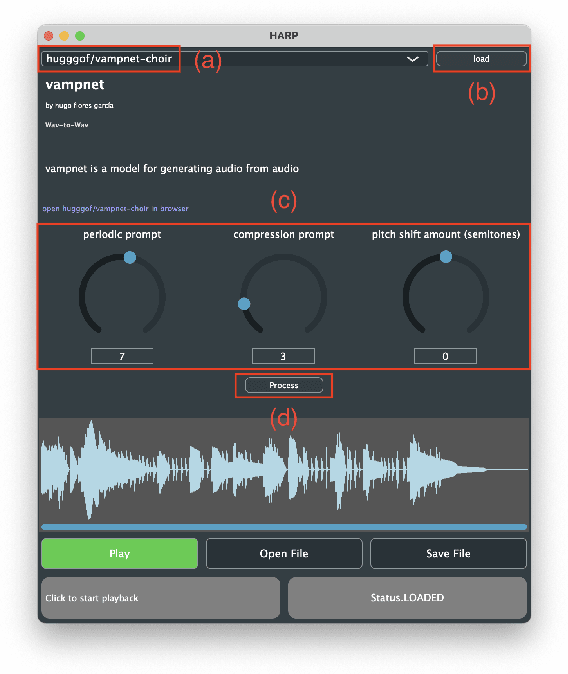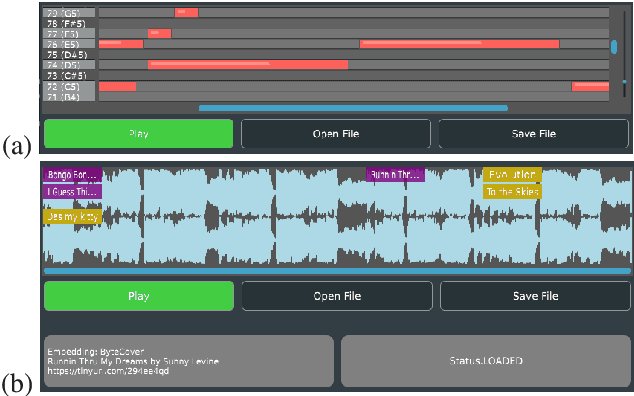HARP 2.0: Expanding Hosted, Asynchronous, Remote Processing for Deep Learning in the DAW
Paper and Code
Mar 04, 2025

HARP 2.0 brings deep learning models to digital audio workstation (DAW) software through hosted, asynchronous, remote processing, allowing users to route audio from a plug-in interface through any compatible Gradio endpoint to perform arbitrary transformations. HARP renders endpoint-defined controls and processed audio in-plugin, meaning users can explore a variety of cutting-edge deep learning models without ever leaving the DAW. In the 2.0 release we introduce support for MIDI-based models and audio/MIDI labeling models, provide a streamlined pyharp Python API for model developers, and implement numerous interface and stability improvements. Through this work, we hope to bridge the gap between model developers and creatives, improving access to deep learning models by seamlessly integrating them into DAW workflows.
 Add to Chrome
Add to Chrome Add to Firefox
Add to Firefox Add to Edge
Add to Edge